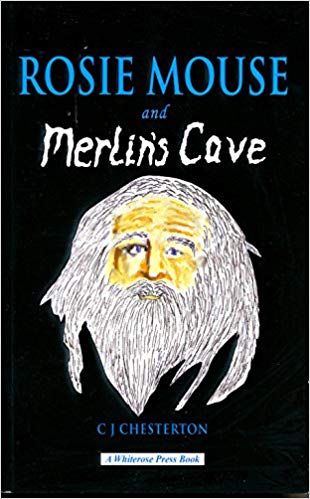-
Rosie Mouse and Merlin's Cave
C. J. Chesterton
Paperback (Whiterose Press Ltd, )None
-
Rosie, Kathie and the Pot of Gold
C. J. Chesterton
Paperback (Whiterose Press Ltd, )None
-
Rosie Mouse, the Lion, the Unicorn and the Crown
C. J. Chesterton
Paperback (Whiterose Press Ltd, )None
-
Getta Jetta or The Girl Who Fired a Trebuchet
CJ Chesterton
Paperback (Whiterose Press, Oct. 1, 2012)Rosemary Whyte, now in her late twenties, lost her parents in a car crash. She became an alcoholic. She attempted suicide. Things have to change and Rosie is desperate to get out of England to find the only man who can help put her life back on track, an Indian guru she met shortly after leaving college. The problem is: she has no money. So when MI6 offer a free flight to India if she will carry out a mission for them, Rosie jumps at the chance. But they lie to her. The flight is not to India it is to somewhere far more dangerous . . . Before the advent of gunpowder, trebuchets, huge medieval catapults invented by the French, were used in sieges to throw fireballs, plague-ridden corpses or just plain boulders over high city walls.
-
Rosie Mouse and The Witch's Cat
CJ Chesterton
eBookNone
-
Rosie Mouse, the Crocodile and the Pirates
CJ Chesterton
eBookNone
-
The Ball and The Cross
GK Chesterton
Paperback (Blurb, April 8, 2019)The Ball and the Cross is a novel by G. K. Chesterton. The title refers to a more worldly and rationalist worldview, represented by a ball or sphere, and the cross representing Christianity. The first chapters of the book were serialized from 1905 to 1906[1] with the completed work published in 1909. The novel's beginning involves debates about rationalism and religion between a Professor Lucifer and a monk named Michael. A part of this section was quoted in Pope John Paul I's Illustrissimi letter to G. K. Chesterton.[2] Much of the rest of the book concerns the dueling, figurative and somewhat more literal, of a Jacobite Catholic named Maclan and an atheist Socialist named Turnbull.[3] Lynette Hunter has argued that the novel is more sympathetic to Maclan, but does indicate Maclan is also presented as in some ways too extreme.[4] Turnbull, as well, is presented in a sympathetic light: both duelists are ready to fight for and die for their antagonistic opinions and, in doing so, develop a certain partnership that evolves into a friendship. The real antagonist is the world outside, which desperately tries to prevent from happening a duel over "mere religion" (a subject both duelists judge of utmost importance).